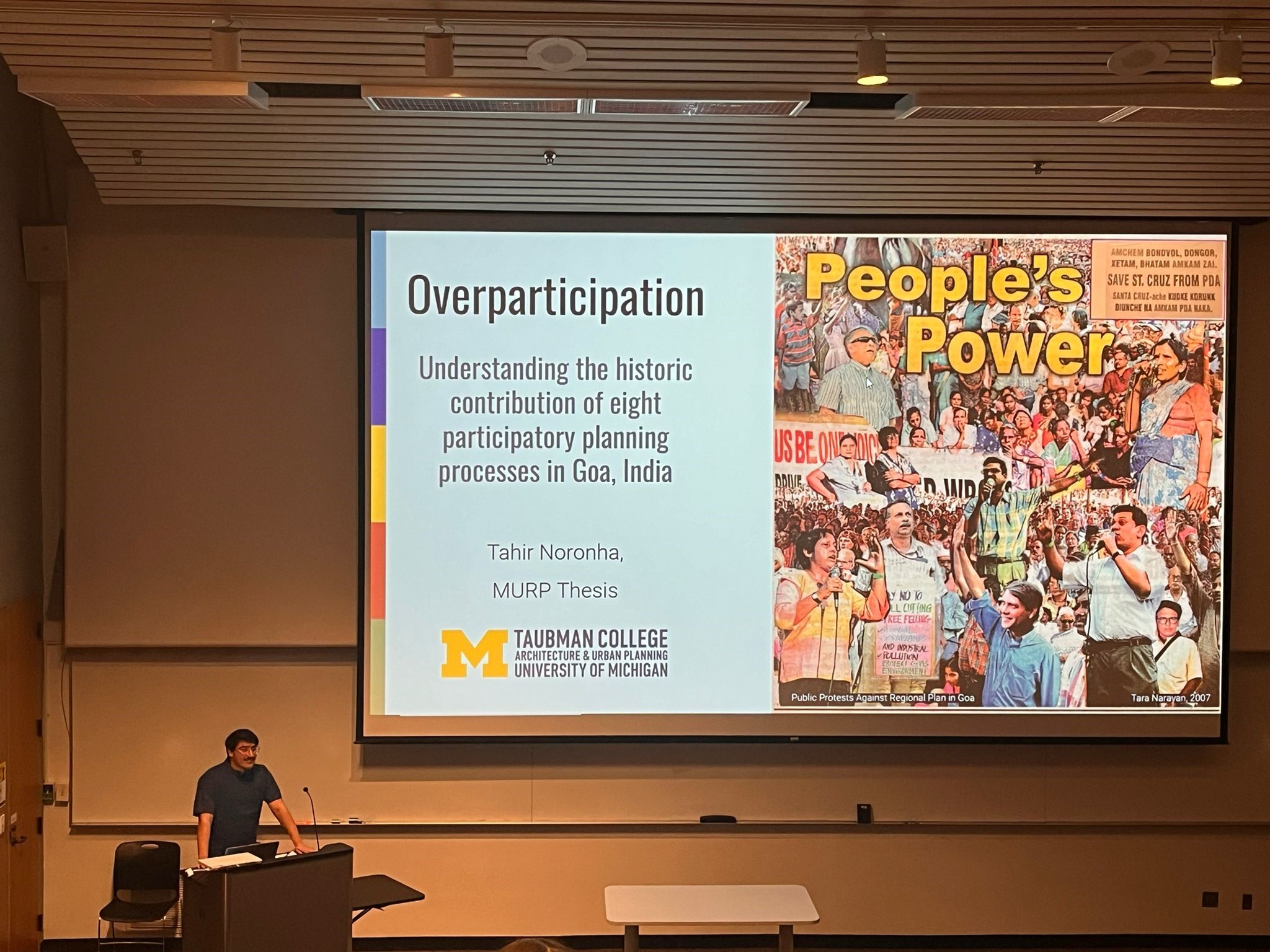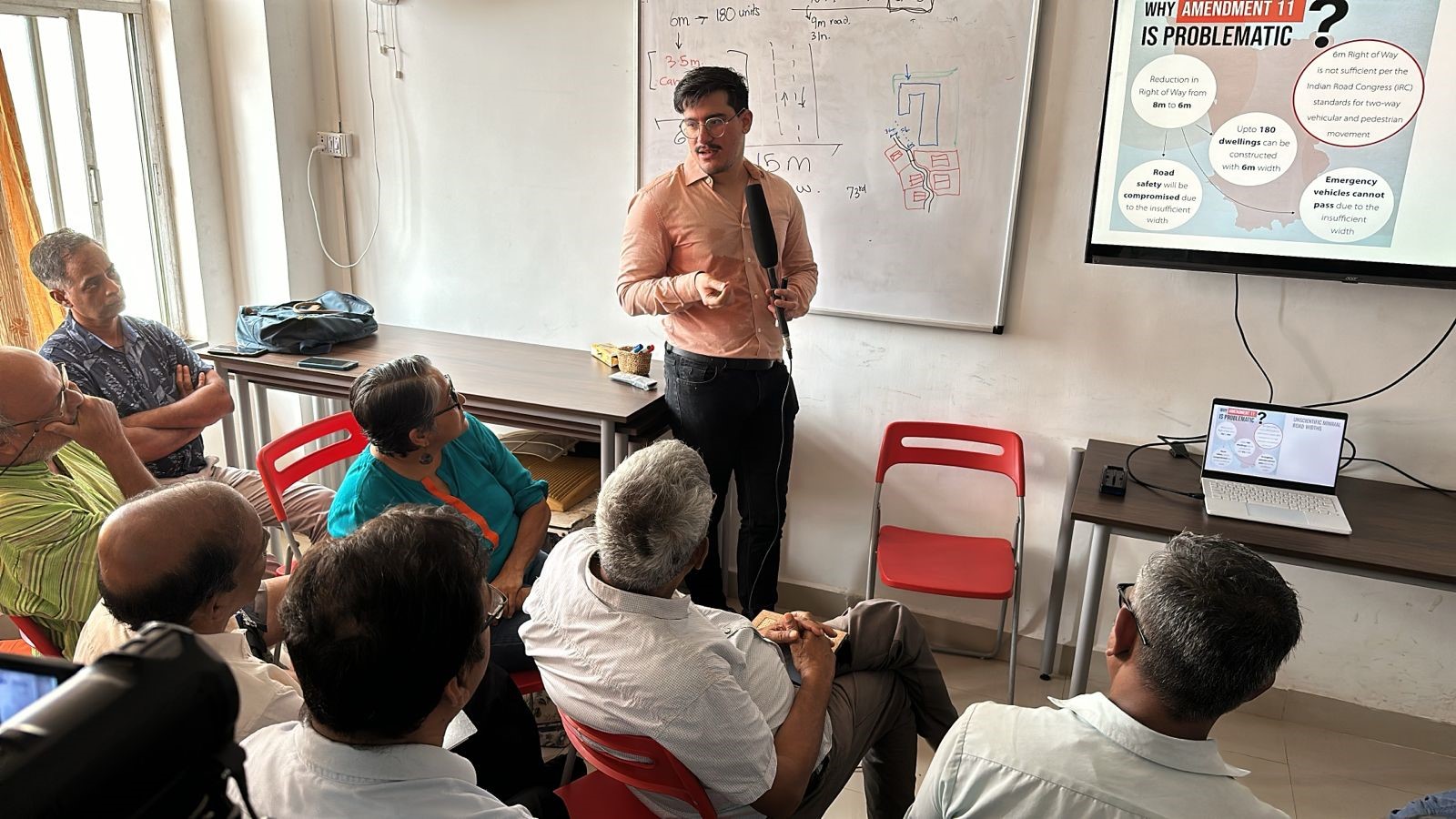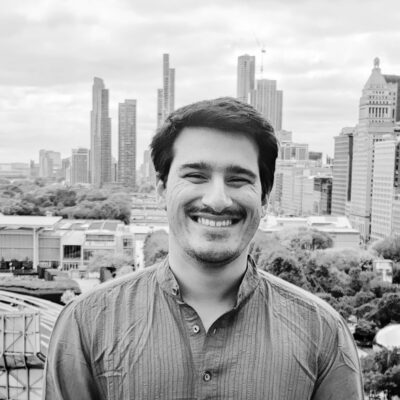SPECIALIZATIONS
Public participation and engagement, planning law, real estate, land use planning.
PHILOSOPHY STATEMENT
My planning journey is tethered to the subaltern history of my homeland Goa, India — a region enveloped in conflicts between indigenous policies and collective rights set against a growing paradigm of private property, centralization and neoliberalism. Planning in Goa is a negotiation between institutions established by laws, government planners acting within and beyond their mandate, and activists representing marginalized communities. Over the past seven years, I have engaged with all three sides of this conflict, gaining the type of “situated knowledge” that Vanessa Watson argued is essential for contributing to anti-colonial theory building and the broader “southern turn in planning” (Watson, 2016). My personal experiences as a Goan underpin my motivation to advance my understanding of the social, political, and economic forces present in my community. I aim to study democracy, inter-governmentalism, and public participation in the region to disseminate useful information that promotes social justice.
My research motivation PhD rests on sharing the stories and experiences of people from my community. Goa deserves scholarly attention in the environmental and social sciences; yet the Goan community is underrepresented in higher education, despite the interest and scholarship in the state. Academics are motivated to write about how 40% of the state is forecasted to be underwater by 2040; or on conflicts between capitalism and Hindu nationalism in this state with strong indigenous policies and a sizable minority population. Most of the literature on Goa in global journals is not authored by Goans. My philosophy starts with contributing to the existing body of literature through larger ‘insider’ knowledge production, embedding my situated knowledge and minority voice into planning practice and research.
BIOGRAPHY
Tahir de Noronha is a licensed architect and planner. A graduate of the Goa College of Architecture and the University of Michigan, he is currently pursuing a PhD at the University of California, Berkeley. His areas of interest are social work, planning, and public policy. Most of his experience has been in conservation of heritage — natural and built — through policy, design, and research. De Noronha's work experience includes leadership as the Convener of the Charles Correa Foundation in Goa, leading a team of Fellows engaging in landscape and urban design projects in the city as well as research and publications on architecture across India. He was also a Planner with the city of Detroit, Michigan formulating regulations and working on public policy. He is co-founder of an organization that creates content on politics, laws and current affairs that affect the practice of regional planning in Goa. De Noronha is a member of several citizen-action groups, and statutory commissions in the city of Panjim (where he was born) and in the village of Neura.
COURSES TAUGHT
CYPLAN 140 – Urban Design and Place Making (TA, Fall 2024)
CYPLAN 117AC / PH150E – Urban and Community Health (TA, Spring 2025)
AWARDS & RECOGNITION
Service to the Urban and Regional Planning Program Award, University of Michigan, 2024
DD Sunctancar Award for Design, Goa University, 2014


